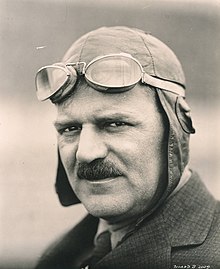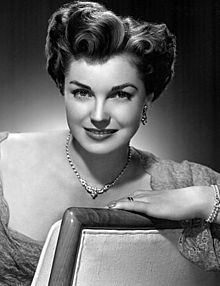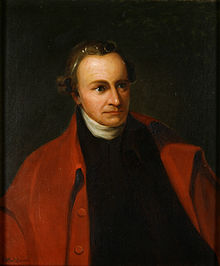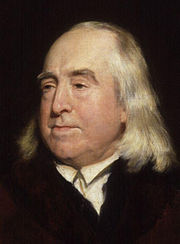June 6 is the 157th day of the year (158th in leap years) in the Gregorian calendar. There are 208 days remaining until the end of the year.
Holidays
- Christian feast day:
- Memorial Day (South Korea)
- National Day of Sweden (Sweden)
- Normandy landings of the Allied Expeditionary Forces (D-Day), a.k.a. Operation Neptune, part of Operation Overlord (1944)
- Queensland Day (Queensland)
- Teachers’ Day (Bolivia)
- Argentina’s engineering day
- UN Russian Language Day (United Nations)
History
In 913, Emperor Alexander III dies of exhaustion while playing the game tzykanion (Byzantine name for polo). He is succeeded by his 8-year-old nephew Constantine VII.
In 1508, Maximilian I, Holy Roman Emperor, is defeated in Friuli by Venetian troops
In 1513, Italian Wars: Battle of Novara. Swiss troops defeat the French under Louis de la Tremoille, forcing the French to abandon Milan. Duke Massimiliano Sforza is restored.
In 1523, Gustav Vasa, the Swedish regent, is elected king of Sweden, marking a symbolic end to the Kalmar Union. This is the Swedish national day.
In 1586, Francis Drake‘s forces raid St. Augustine in Spanish Florida.
In 1644, The Qing dynasty Manchu forces led by the Shunzhi Emperor capture Beijing during the collapse of the Ming dynasty.
In 1654, Queen Christina abdicates the Swedish throne and is succeeded by her cousin Charles X Gustav. She abdicated because she wanted to become a Catholic (which is forbidden in the strictly Protestant Sweden) and did not want to marry to produce an heir to the throne.
In 1674, Shivaji, founder of the Maratha Empire, is crowned.
In 1683, The Ashmolean Museum in Oxford, England, opens as the world’s first university museum.
In 1752, A devastating fire destroys one-third of Moscow, including 18,000 homes.
In 1762, British forces begin a siege of Havana and temporarily capture the city in the Battle of Havana.
In 1799, Patrick Henry, American lawyer and politician, 1st Governor of Virginia (b. 1736) dies. He was an American attorney, planter and politician who became known as an orator during the movement for independence in Virginia in the 1770s. A Founding Father, he served as the first and sixth post-colonial Governor of Virginia, from 1776 to 1779 and from 1784 to 1786. Henry led the opposition to the Stamp Act of 1765 and is remembered for his “Give me liberty, or give me death!” speech. Along with Samuel Adams and Thomas Paine, he is regarded as one of the most influential champions of Republicanism and an invested promoter of the American Revolution and its fight for independence. After the Revolution, Henry was a leader of the anti-federalists in Virginia. He opposed the United States Constitution, fearing that it endangered the rights of the States as well as the freedoms of individuals; he helped gain adoption of the Bill of Rights. By 1798 however, he supported President John Adams and the Federalists; he denounced passage of the Virginia and Kentucky Resolutions as he feared the social unrest and widespread executions that had followed the increasing radicalism of the French Revolution. As a married man, Henry was an expanding landowner. By 1779, along with his cousin and her husband, Henry owned a 10,000-acre (40 km2) plantation known by the name of Leatherwood. He is also recorded to have purchased up to 78 slaves. In 1794 he and his wife retired to Red Hill Plantation, which had 520-acre (2.1 km2) in Charlotte County that was also a functioning tobacco plantation.
In 1808, Napoleon‘s brother, Joseph Bonaparte, is crowned King of Spain.
In 1809, Sweden promulgates a new Constitution, which restores political power to the Riksdag of the Estates after 20 years of enlightened absolutism. At the same time, Charles XIII is elected to succeed Gustav IV Adolf as King of Sweden.
In 1813, War of 1812: Battle of Stoney Creek – A British force of 700 under John Vincent defeats an American force two times its size under William Winder and John Chandler.
In 1822, Alexis St. Martin is accidentally shot in the stomach, leading to William Beaumont’s studies on digestion.
In 1832, The June Rebellion in Paris is put down by the National Guard.
In 1832, Jeremy Bentham, English jurist and philosopher (b. 1748) dies. He was a British philosopher, jurist, and social reformer. He is regarded as the founder of modern utilitarianism. Bentham became a leading theorist in Anglo-American philosophy of law, and a political radical whose ideas influenced the development of welfarism. He advocated individual and economic freedom, the separation of church and state, freedom of expression, equal rights for women, the right to divorce, and the decriminalising of homosexual acts. He called for the abolition of slavery, the abolition of the death penalty, and the abolition of physical punishment, including that of children. He has also become known in recent years as an early advocate of animal rights. Though strongly in favour of the extension of individual legal rights, he opposed the idea of natural law and natural rights, calling them “nonsense upon stilts”. Bentham’s students included his secretary and collaborator James Mill, the latter’s son, John Stuart Mill, the legal philosopher John Austin, as well as Robert Owen, one of the founders of utopian socialism. Bentham has been described as the “spiritual founder” of University College London, though he played little direct part in its foundation
In 1833, U.S. President Andrew Jackson becomes the first President to ride on a train.
In 1844, The Young Men’s Christian Association (YMCA) is founded in London.
In 1857, Sophia of Nassau marries the future King Oscar II of Sweden–Norway.
In 1859, Australia: Queensland is established as a separate colony from New South Wales (Queensland Day).
In 1862, American Civil War: Battle of Memphis – Union forces capture Memphis, Tennessee, from the Confederates.
In 1865, William Quantrill, American captain (b. 1837) received a gunshot wound to the chest. He was brought by wagon to Louisville, Kentucky and taken to the military prison hospital, located on the north side of Broadway at 10th Street. He died from his wounds on June 6, 1865, at the age of 27. By some accords he was a Confederate guerrilla leader during the American Civil War. After leading a Confederate bushwhacker unit along the Missouri-Kansas border in the early 1860s, which included the infamous raid and sacking of Lawrence, Kansas in 1863, Quantrill eventually ended up in Kentucky where he was mortally wounded in a Union ambush in May 1865, aged 27.
In 1882, More than 100,000 inhabitants of Bombay are killed as a cyclone in the Arabian Sea pushes huge waves into the harbour.
In 1882, The Shewan forces of Menelik II of Ethiopia defeat the Gojjame army in the Battle of Embabo. The Shewans capture Negus Tekle Haymanot of Gojjam, and their victory leads to a Shewan hegemony over the territories south of the Abay River.
In 1889, The Great Seattle Fire destroys all of downtown Seattle.
In 1892, Chicago ‘L’ (commuter rail system) begins operation
In 1894, Governor Davis H. Waite orders the Colorado state militia to protect and support the miners engaged in the Cripple Creek miners’ strike.
In 1909, French troops capture Abéché (in modern-day Chad) and install a puppet sultan in the Ouaddai Empire.
In 1912, The eruption of Novarupta in Alaska begins. It is the second largest volcanic eruption of the 20th century.
In 1918, World War I: Battle of Belleau Wood – The U.S. Marine Corps suffers its worst single day’s casualties while attempting to recapture the wood at Chateau-Thierry.
In 1919, The Republic of Prekmurje ends.
In 1921, Southwark Bridge in London is opened for traffic by King George V and Queen Mary.
In 1932, The Revenue Act of 1932 is enacted, creating the first gas tax in the United States, at a rate of 1 cent per US gallon (1⁄4¢/L) sold.
In 1933, The first drive-in theater opens, in Camden, New Jersey, United States.
In 1934, New Deal: the U.S. President Franklin D. Roosevelt signs the Securities Act of 1933 into law, establishing the U.S. Securities and Exchange Commission.
In 1939, Judge Joseph Force Crater, known as the “Missingest Man in New York”, is declared legally dead.

In 1941, Louis Chevrolet, Swiss-American race car driver and businessman, founder of Chevrolet and Frontenac Motor Corporation (b. 1878) dies. He was a Swiss-born American race car driver of French descent, founder of the Chevrolet Motor Car Company in 1911, and a founder in 1916 of the Frontenac Motor Corporation, which made racing parts for Ford’s Model T. Chevrolet co-founded the Chevrolet Motor Car Company with Durant and investment partners William Little (maker of the Little automobile) and Dr. Edwin R. Campbell, son-in-law of Durant and friend of Samuel McLaughlin of the McLaughlin Car Company of Canada Ltd. The company was established in Detroit. One story tells the choosing of the company’s logo as a modified Swiss cross, to honor Chevrolet’s homeland. Another story tells of the Chevrolet logo as a design taken from the wallpaper of a Paris hotel room that Louis once stayed in.
In 1942, Charles Raymond Neudecker was born (died 2014).
In 1942, World War II: Battle of Midway. U.S. Navy dive bombers sink the Japanese cruiser Mikuma and four Japanese carriers.
In 1944, World War II: the Battle of Normandy begins. D-Day, code named Operation Overlord, commences with the landing of 155,000 Allied troops on the beaches of Normandy in France. The allied soldiers quickly break through the Atlantic Wall and push inland in the largest amphibious military operation in history.
In 1946, The National Basketball Association is created, with eleven teams.
In 1964, Under a temporary order, the rocket launches at Cuxhaven, Germany are terminated. They never resume.
In 1968, Assassination of Robert F. Kennedy: Robert F. Kennedy, Democratic Party senator from New York and brother of 35th President John F. Kennedy, dies from gunshot wounds inflicted on June 5.
In 1971, Soyuz program: Soyuz 11 is launched.
In 1971, A midair collision between a Hughes Airwest Douglas DC-9 jetliner and a United States Marine Corps McDonnell Douglas F-4 Phantom II jet fighter near Duarte, California, claims 50 lives.
In 1971, Vietnam War: the Battle of Long Khanh between Australian and Vietnamese communist forces begins.
In 1974, A new Instrument of Government is promulgated making Sweden a parliamentary monarchy.
In 1976, J. Paul Getty, American businessman, founded the Getty Oil Company (b. 1892) died of heart failure at the age of 83. He was an American industrialist. He founded the Getty Oil Company, and in 1957 Fortune magazine named him the richest living American, whilst the 1966 Guinness Book of Records named him as the world’s richest private citizen, worth an estimated $1.2 billion (approximately $8.7 billion in 2013). At his death, he was worth more than $2 billion (approximately $8.3 billion in 2013). A book published in 1996 ranked him as the 67th richest American who ever lived, based on his wealth as a percentage of the gross national product. Preceding him in death by two months, Howard Hughes‘ estate was listed at $2.5 billion. But while Hughes had engaged in a great deal of philanthropy, despite his wealth, Getty was known for being a miser. Getty was an avid collector of art and antiquities; his collection formed the basis of the J. Paul Getty Museum in Los Angeles, California, and over $661 million (approximately $2.7 billion in 2013) of his estate was left to the museum after his death. He established the J. Paul Getty Trust in 1953. The trust is the world’s wealthiest art institution, and operates the J. Paul Getty Museum, the Getty Foundation, the Getty Research Institute, and the Getty Conservation Institute.
In 1981, Bihar train disaster: a passenger train travelling between Mansi and Saharsa, India, jumps the tracks at a bridge crossing the Bagmati river. The government places the official death toll at 268 plus another 300 missing; however, it is generally believed that the actual death toll is closer to 1,000.
In 1982, The 1982 Lebanon War begins. Forces under Israeli Defense Minister Ariel Sharon invade southern Lebanon during Operation Peace for the Galilee, eventually reaching as far north as the capital Beirut.
In 1982, A British Army Air Corps Gazelle helicopter is destroyed in a friendly fire incident, resulting in the loss of four lives.
In 1984, Tetris, one of the best-selling video games of all time, is released.
In 1985, The grave of “Wolfgang Gerhard” is opened in Embu, Brazil; the remains exumed are later proven to be those of Josef Mengele, Auschwitz‘s “Angel of Death”. Mengele is thought to have drowned while swimming in February 1979.
In 1992, The Fantoft Stave Church in Norway is destroyed by Varg Vikernes. This was the first in a string of church arsons in the Early Norwegian black metal scene
In 1993, Mongolia holds its first direct presidential elections.
In 1997, Prom Mom incident: While attending her senior prom in Lacey Township, New Jersey, Melissa Drexler gives birth in a bathroom stall, leaves the baby to die in a trash can and then returns to the prom.
In 2002, Eastern Mediterranean event. A near-Earth asteroid estimated at 10 meters in diameter explodes over the Mediterranean Sea between Greece and Libya. The resulting explosion is estimated to have a force of 26 kilotons, slightly more powerful than the Nagasaki atomic bomb.
In 2004, Tamil is established as a “classical language” by the President of India, Dr. A. P. J. Abdul Kalam, in a joint sitting of the two houses of the Indian Parliament.
In 2005, In Gonzales v. Raich, the United States Supreme Court upholds a federal law banning cannabis, including medical marijuana.
In 2007, Democratic presidential hopeful Barack Obama visited the Tennessee state Capitol on Tuesday to get some advice from Tennessee Democrats on how to appeal to voters beyond the party. The Illinois senator said he decided to meet with [su_highlight]Gov. Bredesen[/su_highlight] and some key legislators while in town for private campaign events hosted by supporters. He had no public events scheduled.

In 2013, Ester Williams died in her sleep on June 6, 2013, from natural causes, in her Los Angeles home. She was 91. She was an American competitive swimmer and actress. Williams set multiple national and regional swimming records in her late teens as part of the Los Angeles Athletic Club swim team. Unable to compete in the 1940 Summer Olympics because of the outbreak of World War II, she joined Billy Rose’s Aquacade, where she took on the role vacated by Eleanor Holm after the show’s move from New York City to San Francisco. While in the city, she spent five months swimming alongside Olympic gold medal winner and Tarzan star, Johnny Weissmuller. Williams caught the attention of Metro-Goldwyn-Mayer scouts at the Aquacade. After appearing in several small roles, alongside Mickey Rooney in an Andy Hardy film, and future five-time co-star Van Johnson in A Guy Named Joe, Williams made a series of films in the 1940s and early 1950s known as “aquamusicals,” which featured elaborate performances with synchronised swimming and diving.
In 2016, Jonathan Sapp graduates cum laud from Harvard Law School.
In 2016, Major news outlets report Hillary Clinton as having become the presumptive nominee for US president, the first female in a major party to do so in the country’s 240-year history. Politics at its worst.
May God Bless and Keep You This Day Till Tomorrow




